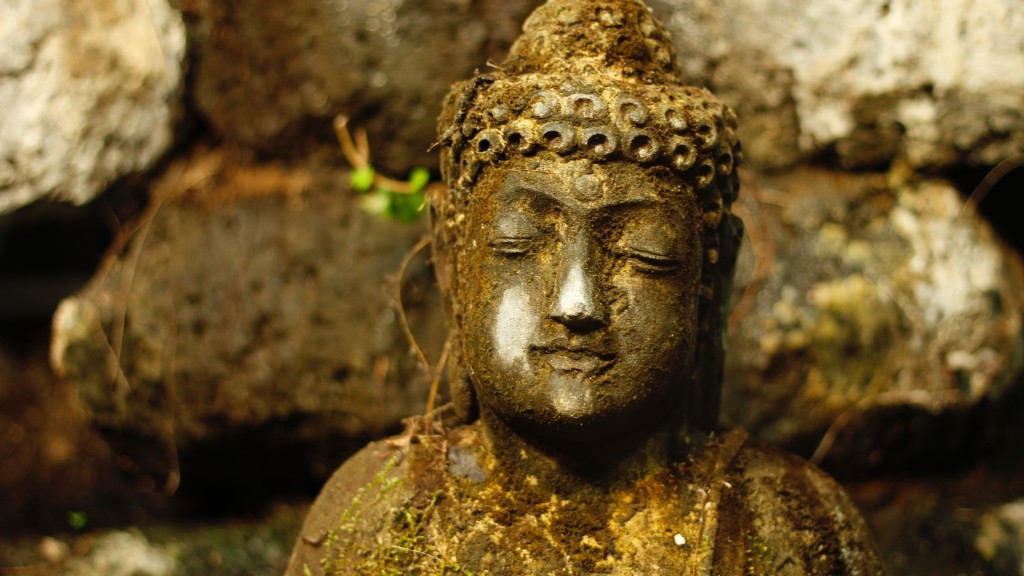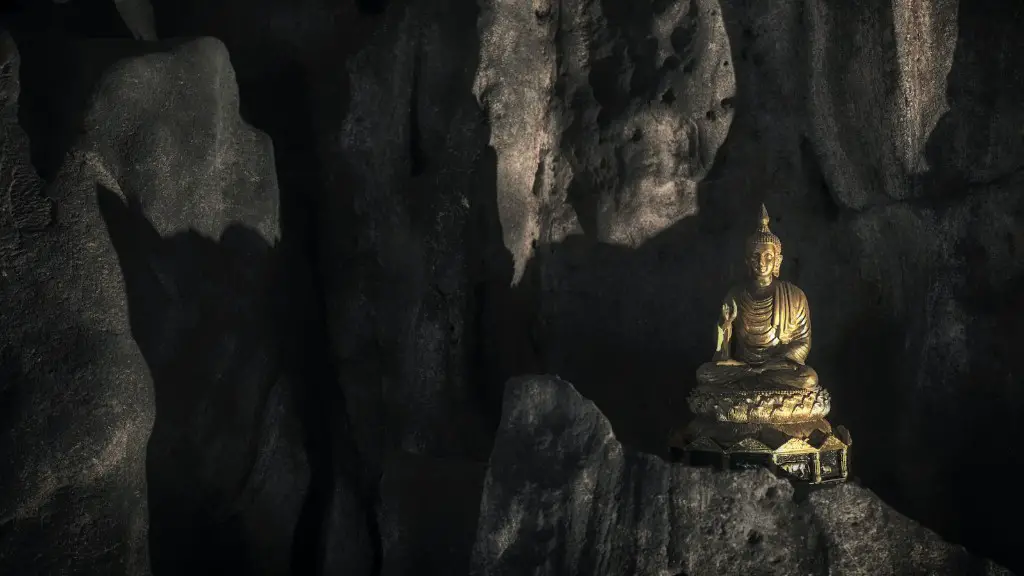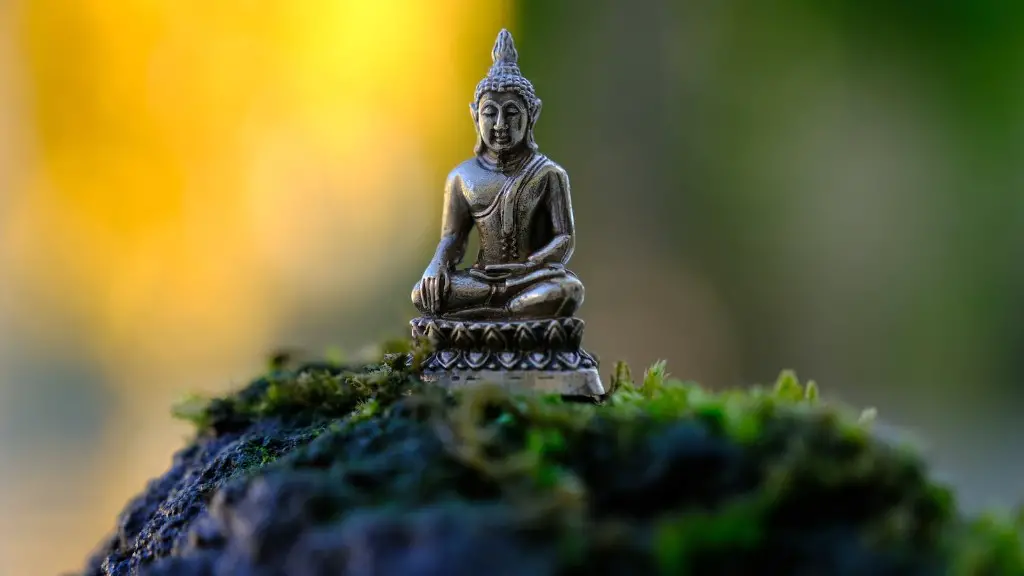Buddhism is a religion and philosophy founded in the 6th century BCE by Siddhartha Gautama, the Buddha, born a prince of the Shakya clan in Lumbini and grew up in Kapilvastu. Siddhartha Gautama is the primary figure in Buddhism, and accounts of his life, discourses, and monastic rules are believed by Buddhists to have been summarized after his death and memorized by his followers. Various collections of teachings attributed to the Buddha were passed down by oral tradition, and first committed to writing about 400 years later.
The core belief of Buddhism is that all beings have the potential to attain enlightenment.
What are the 3 core beliefs of Buddhism?
Buddhism is a religion that is based on the teachings of Siddhartha Gautama. The main principles of this belief system are karma, rebirth, and impermanence.
Karma is the belief that our actions have consequences, and that our future lives will be determined by our actions in this life.
Rebirth is the belief that we are reborn into different forms after we die, and that our actions in this life determine what form we will take in our next life.
Impermanence is the belief that everything is constantly changing, and that nothing lasts forever.
Buddhism values love, wisdom, goodness, calmness, and self-control because Buddhists believe that people should try to end suffering. All things should be seen as having no self or essential nature.
What are 5 basic beliefs of Buddhism
The Five Precepts are guidelines for living a moral and ethical life. They are:
1. Refrain from taking life
2. Refrain from taking what is not given
3. Refrain from the misuse of the senses
4. Refrain from wrong speech
5. Refrain from intoxicants that cloud the mind.
Following these precepts will help us to live a life that is in harmony with others and with ourselves.
Nirvana is the goal of Buddhism and is believed to be attainable only with the elimination of all greed, hatred, and ignorance within a person. Nirvana signifies the end of the cycle of death and rebirth.
Do Buddhist believe in God?
Buddhism is a tradition focused on spiritual liberation, but it is not a theistic religion. The Buddha himself rejected the idea of a creator god, and Buddhist philosophers have even argued that belief in an eternal god is nothing but a distraction for humans seeking enlightenment.
The Four Noble Truths are the cornerstone of the Buddha’s teachings. They provide a roadmap for understanding the human condition and for liberation from suffering. The first truth is that suffering exists and is an inescapable part of life. The second truth is that suffering is caused by our attachments and clinging. The third truth is that suffering can be ended by letting go of our attachments. The fourth truth is that there is a path to liberation from suffering. This path is the Noble Eightfold Path.
Who is the god of Buddhist?
Buddhists do not believe in a supreme god or any sort of deity. Instead, they focus on achieving enlightenment, which is a state of inner peace and wisdom. Once a person has reached this spiritual echelon, they are said to have experienced nirvana. The founder of Buddhism, Buddha, is considered an extraordinary being, but not a god.
There are some inherent and fundamental differences between Buddhism and Christianity. One significant element is that Christianity is at its core monotheistic and relies on a God as a Creator, while Buddhism is generally non-theistic and rejects the notion of a Creator God. This means that Christians believe in one God who created the world and sets forth divine values for it, while Buddhists do not necessarily believe in a God or gods who created the world or sets forth any values for it. This difference can lead to different views on a number of topics, such as the nature of reality, the purpose of life, and how to achieve salvation or enlightenment.
What is the first rule of Buddhism
The Four Noble Truths are the central teachings of Buddhism and are accepted by all schools of Buddhism. The Four Noble Truths are the truth of suffering, the truth of the origin of suffering, the truth of the cessation of suffering, and the truth of the path to the cessation of suffering. The Four Noble Truths are the foundation of Buddhist thought and practice.
Buddhist ethics uphold the value of non-violence and non-harming to all living creatures. This value is associated with the first precept of not killing. Buddhism teaches that all living creatures are equal and deserving of compassion and respect. harming another creature causes suffering and is therefore to be avoided.
What are Buddhist beliefs about death?
Buddhist teaching views life and death as a continuum, believing that consciousness (the spirit) continues after death and may be reborn. Death can be an opportunity for liberation from the cycle of life, death and rebirth.
The life of a Buddhist monk is one of serenity and simplicity. Their day revolves around meditation, study, and taking part in ceremonies. In Buddhist monasteries and shires, one can find monks living in peaceful harmony. Gompas and stupas are also places of worship for Buddhists.
Do Buddhists believe in heaven
In Buddhism, there is no concept of punishment or reward and there is no divine being who decides who goes to hell or heaven. There is merely the illusory results of our thought, words and deeds, which we call karma.
Buddhism asserts that there is no soul or self that transcendes through a cycle of rebirths and redeaths. Instead, Buddhism posits that there is simply a cycle of transmigration consisting of rebirths and redeaths. This is the fundamental nature of existence according to Buddhist teachings.
Do Buddhists drink alcohol?
The main reason for this restriction is because the consumption of alcohol is seen as a hindrance to the development of mindfulness and clear awareness – two key qualities that are necessary for spiritual development according to the Buddhist tradition. In addition, intoxication from alcohol is often associated with negative states of mind such as greed, anger and aversion, which are also seen as obstacles to the practice of Buddhism.
It is popularly believed that Buddhists do not celebrate the holiday season. However, many Buddhists do in fact participate in the holiday season. Among Asian American Buddhists, three-quarters celebrate Christmas. On Dec 8, some Buddhists also observe Bodhi Day, which marks when the Buddha reached enlightenment. Thus, contrary to popular belief, Buddhists do participate in the holiday season.
What is Buddhism’s holy book called
The TripitakaPali canon is the complete set of teachings of the Theravada branch of Buddhism. It includes the sayings of the Buddha, his monastic rules, and commentaries on the scriptures. The Tripitaka was first written down in Pali, the language of Theravada Buddhism, and later translated into other languages.
Buddhist followers often pray to buddhas, bodhisattvas, and spiritual masters. One of the meanings behind these prayers is to invoke the enlightened qualities of our own heart and mind through letting go of the ego’s resistance to humility. By aligning ourselves with the enlightened energy of these masters, we open ourselves up to become more like them. In doing so, we let go of our own ego-driven desires and attachments, and become more compassionate and loving.
Final Words
There is no one answer to this question as Buddhism is a religion with a wide variety of schools and traditions. However, many Buddhists would say that the core belief of their religion is the Four Noble Truths. These truths are that life is suffering, that suffering has a cause, that there is a way to end suffering, and that following the Noble Eightfold Path is that way.
The core belief of Buddhism is that all beings have the potential to achieve enlightenment. This potential is realized through the practice of the Noble Eightfold Path.




